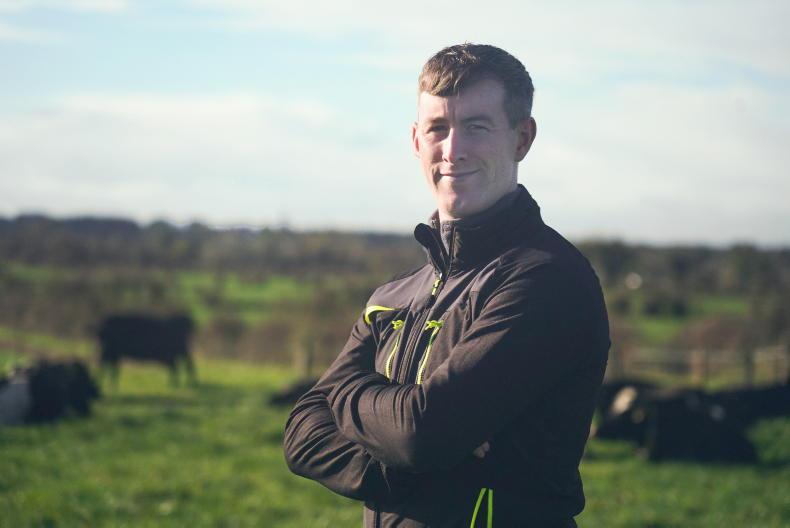There are over 20,000 dairy farms on the island of Ireland with these farms supporting over 40,000 jobs across the dairy industry, from milk lorry drivers to lab technicians to roles in marking and sales.
As a rough rule of thumb, about 1,500 of these people working in the sector retire each year, thus creating a vacancy for someone new to enter the sector.
On top of this, the big expansion in dairying over the last decade has added thousands of more jobs.
One word sums up the Irish dairy industry best; opportunity.
So where does one go for a taste of the action? The first thing to note is that the sector relies on highly skilled people, right through the line from farm operatives to milk company CEO’s.
The good news is that many positions offer on-the-job learning, but for school leavers having a qualification is definitely an advantage.
The following is a list of some of the courses on offer for those looking to pursue a career in the dairy sector;
Level six
The entry point for those looking for a career as a dairy farmer or dairy farm manager is the level six qualification in dairy herd management.
This full time, two year course is being run at six agricultural colleges throughout the country and students study a mix of practical and theory plus on-farm work experience. Entry is not through the CAO process.
Level seven
Graduates of the level six course can progress to the two year professional diploma in dairy farm management course which is operated at Teagasc centres in Kildalton and Moorepark in between full time work experience on high performing dairy farms.
This course is run in conjunction with UCD and is aimed at those looking to become highly skilled dairy farmers and dairy farm managers.
Academic courses
There are a myriad of more academic type courses on offer across multiple institutions throughout the country ranging from certificate to degree level.
One recent change is that many institutes of technology have now merged to form technological universities.
For example CIT in Cork is now part of Munster Technological University (MTU) while WIT and Carlow IT have merged to form South East Technological University (SETU).
Each of these institutions provide agricultural courses up to degree level with many graduates ending up working in the dairy sector, both on farms and in a professional capacity such as farm advisor, technical sales representative, etc.
Two advantages to these courses is that students can start off at two year certificate level and then progress to four year degree level and beyond.
Secondly, CAO points for entry to these technological courses are generally lower than that required for entry to traditional university degrees.
These courses include practical farm skills training, classroom and lab teaching and work experience.
UCD
Agricultural science at UCD is the largest school of agriculture in the country with over 150 graduates per annum.
The majority of those working in the dairy sector specialise in either animal and crop production or dairy business.
The dairy business course at UCD was previously a stand-alone course but is now integrated into general agricultural science for first year.
That course is also closely integrated with Teagasc Moorepark and the students are encouraged to do their work experience in New Zealand. CAO points for Agricultural Science in UCD were 440 points in 2021.
Northern Ireland
Students wishing to study in Northern Ireland can do so at the CAFRE campus at Greenmount.
There are a range of full and part time courses in agriculture available ranging from a one year technical certificate to a three or four year degree in Agricultural Technology in conjunction with Queens University Belfast.
UCC
University College Cork’s new flagship Agricultural Science course is now in its third year, with students getting a blend of learning from UCC, Teagasc and professional work experience.
This course has strong links to Moorepark, with students based at the research centre for almost all of the fourth year of the course.
Entry to the course is through the CAO process and such is the demand for places that points are high with 506 points required to gain entry last year.
In third year, students undertake a total of 30 weeks of work placement across two settings ; first an 18-week farm placement with one of Irelands top dairy farmers, where they gain experience of all aspects of day to day management of an intensive, highly efficient, profitable and sustainable dairy farming operation.
This is then followed by an opportunity to spend 12 weeks on industry placement in a company or organisation that the student is interested in. These work placements form the basis of a substantial final year project.
It is expected that graduates of this course will either continue on to further study such as masters or PhD level or take up professional positions in organisations such as Teagasc, ICBF, dairy co-ops, etc.
Aidan’s advice
When all is said and done, it is skills learned at college and in the years after college that will differentiate candidates for a job.
Where you studied and what marks you achieved will be less important than what skills you have and how they could benefit the organisation you want to work for.
In my view, all aspiring dairy farmers whether farm owners or farm managers should be doing three or four years in college and then working either in industry or on other farms before returning to the home farm.
This will broaden horizons and help gain experience that will be vital when it comes to running the farm.
Remember, a typical day in a dairy farmers life involves some aspect of accountancy, veterinary, agricultural science, human resource management and IT.
Read more
Dairy management: how to look after clover seedlings
Bored of dairying? Try farming clover
There are over 20,000 dairy farms on the island of Ireland with these farms supporting over 40,000 jobs across the dairy industry, from milk lorry drivers to lab technicians to roles in marking and sales.
As a rough rule of thumb, about 1,500 of these people working in the sector retire each year, thus creating a vacancy for someone new to enter the sector.
On top of this, the big expansion in dairying over the last decade has added thousands of more jobs.
One word sums up the Irish dairy industry best; opportunity.
So where does one go for a taste of the action? The first thing to note is that the sector relies on highly skilled people, right through the line from farm operatives to milk company CEO’s.
The good news is that many positions offer on-the-job learning, but for school leavers having a qualification is definitely an advantage.
The following is a list of some of the courses on offer for those looking to pursue a career in the dairy sector;
Level six
The entry point for those looking for a career as a dairy farmer or dairy farm manager is the level six qualification in dairy herd management.
This full time, two year course is being run at six agricultural colleges throughout the country and students study a mix of practical and theory plus on-farm work experience. Entry is not through the CAO process.
Level seven
Graduates of the level six course can progress to the two year professional diploma in dairy farm management course which is operated at Teagasc centres in Kildalton and Moorepark in between full time work experience on high performing dairy farms.
This course is run in conjunction with UCD and is aimed at those looking to become highly skilled dairy farmers and dairy farm managers.
Academic courses
There are a myriad of more academic type courses on offer across multiple institutions throughout the country ranging from certificate to degree level.
One recent change is that many institutes of technology have now merged to form technological universities.
For example CIT in Cork is now part of Munster Technological University (MTU) while WIT and Carlow IT have merged to form South East Technological University (SETU).
Each of these institutions provide agricultural courses up to degree level with many graduates ending up working in the dairy sector, both on farms and in a professional capacity such as farm advisor, technical sales representative, etc.
Two advantages to these courses is that students can start off at two year certificate level and then progress to four year degree level and beyond.
Secondly, CAO points for entry to these technological courses are generally lower than that required for entry to traditional university degrees.
These courses include practical farm skills training, classroom and lab teaching and work experience.
UCD
Agricultural science at UCD is the largest school of agriculture in the country with over 150 graduates per annum.
The majority of those working in the dairy sector specialise in either animal and crop production or dairy business.
The dairy business course at UCD was previously a stand-alone course but is now integrated into general agricultural science for first year.
That course is also closely integrated with Teagasc Moorepark and the students are encouraged to do their work experience in New Zealand. CAO points for Agricultural Science in UCD were 440 points in 2021.
Northern Ireland
Students wishing to study in Northern Ireland can do so at the CAFRE campus at Greenmount.
There are a range of full and part time courses in agriculture available ranging from a one year technical certificate to a three or four year degree in Agricultural Technology in conjunction with Queens University Belfast.
UCC
University College Cork’s new flagship Agricultural Science course is now in its third year, with students getting a blend of learning from UCC, Teagasc and professional work experience.
This course has strong links to Moorepark, with students based at the research centre for almost all of the fourth year of the course.
Entry to the course is through the CAO process and such is the demand for places that points are high with 506 points required to gain entry last year.
In third year, students undertake a total of 30 weeks of work placement across two settings ; first an 18-week farm placement with one of Irelands top dairy farmers, where they gain experience of all aspects of day to day management of an intensive, highly efficient, profitable and sustainable dairy farming operation.
This is then followed by an opportunity to spend 12 weeks on industry placement in a company or organisation that the student is interested in. These work placements form the basis of a substantial final year project.
It is expected that graduates of this course will either continue on to further study such as masters or PhD level or take up professional positions in organisations such as Teagasc, ICBF, dairy co-ops, etc.
Aidan’s advice
When all is said and done, it is skills learned at college and in the years after college that will differentiate candidates for a job.
Where you studied and what marks you achieved will be less important than what skills you have and how they could benefit the organisation you want to work for.
In my view, all aspiring dairy farmers whether farm owners or farm managers should be doing three or four years in college and then working either in industry or on other farms before returning to the home farm.
This will broaden horizons and help gain experience that will be vital when it comes to running the farm.
Remember, a typical day in a dairy farmers life involves some aspect of accountancy, veterinary, agricultural science, human resource management and IT.
Read more
Dairy management: how to look after clover seedlings
Bored of dairying? Try farming clover










SHARING OPTIONS